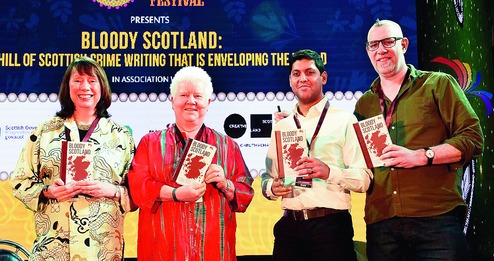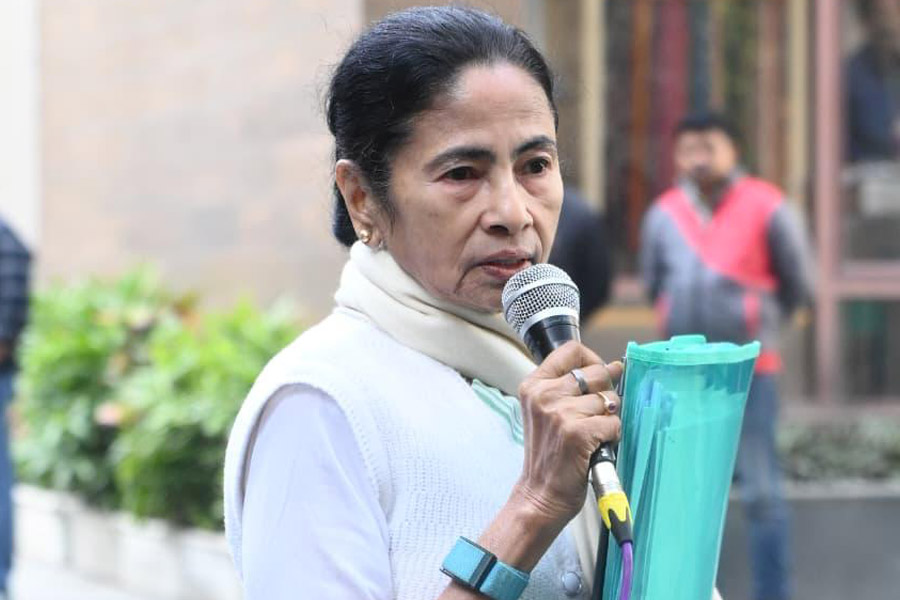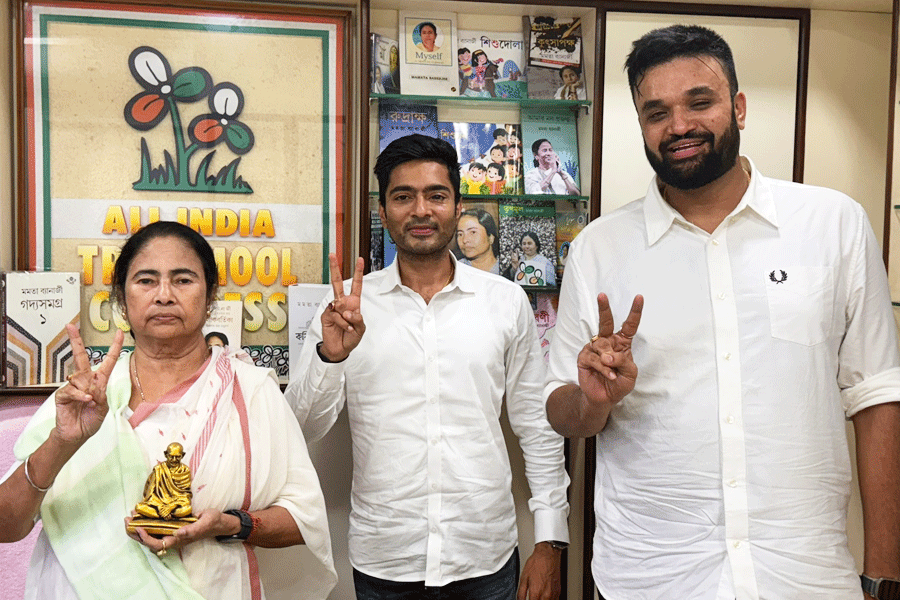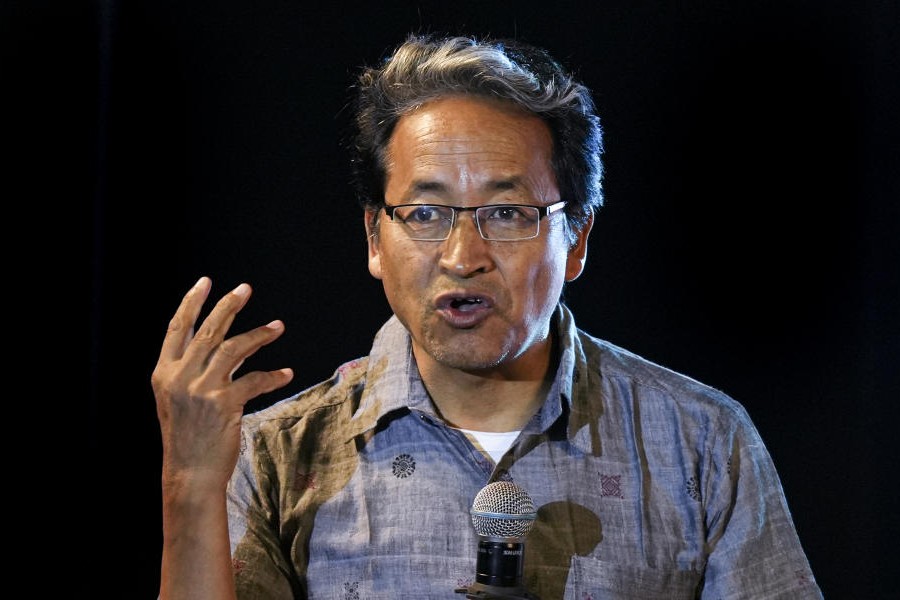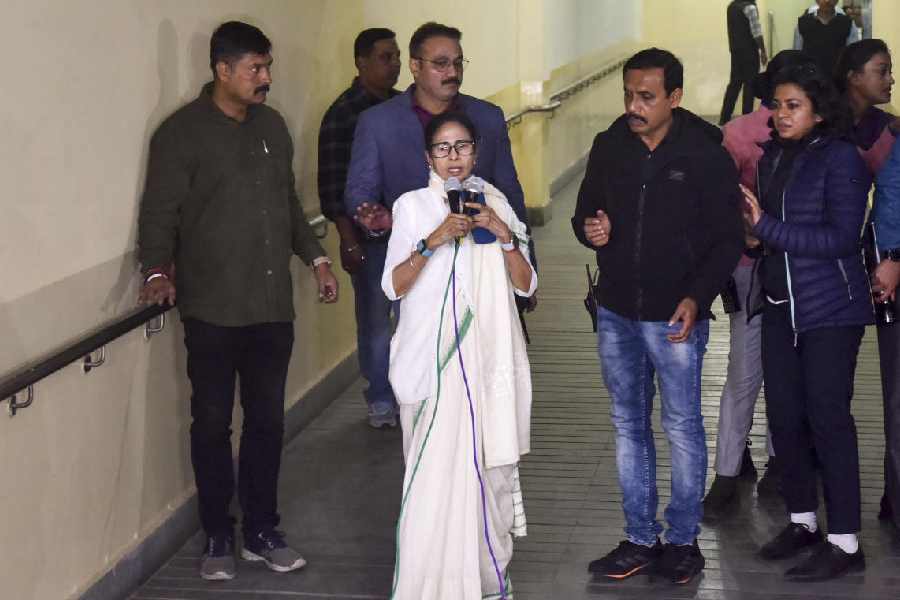
Central Park: Both Calcutta and Scotland are quick tempered; they have a similar outlook to life; both feel they are dominated by people of lower intelligence; both have a strong tradition of crime writing.
Three crime writers - Val McDermid, Graeme Macrae Burnet and Abir Mukherjee - tried to bridge the gap between Scotland and Bengal at the start of their session, Bloody Scotland: The chill of Scottish crime writing that is enveloping the world, on the second day of Kolkata Literature Festival, in association with The Telegraph, at Central Park on Friday.
A similar tune to hum - Purano shei diner katha / Auld Lang Syne - has brought the two crime fiction loving places together, the writers said.
Crime fiction in Scotland is a blooming industry. McDermid felt it was only in the past 40 years that the nation was being "trampled by the rush of crime writers".
"People think crime fiction is very English. There was Charles Dickens and Agatha Christie. We had Arthur Conan Doyle and Robert Louis Stevenson but it was only with William Mcilvanney's Laidlaw that the crime genre got a Scottish flavour. The people and streets of Scotland got a voice through his fiction," explained McDermid to a full house.
It was Laidlaw that gave Macrae, shortlisted for Man Booker 2016, a taste of crime. "The book spoke to me. A novel can have a crime but that should not take away its literary value," he said on how whodunnits are valuable literature.
Mukherjee spoke on how he started dabbling in this genre in search of identity and to bridge the gap between his Bengali and Scottish roots. "My stories are about British India and are set in Calcutta. During my research I found so much of Scotland in Minto Park and Dalhousie Square."
A place or the backdrop of a crime is very important to crime writers. According to McDermid some places call out to be written about. "We play with magic realism. A normal investigation can be boring. We add magic to an imagined investigation by describing a place so that people can identify with it," she said.
Macrae chipped in with how a visit to a French restaurant got him working on a plot. The author of His Bloody Project highlighted the struggles of Scottish writers. "My first novel was turned down by 15 publishers," he said as others added how more and more new writers were getting opportunities in recent years and were becoming the voice of contemporary ideas.
What makes for a quintessential Scottish crime fiction, a member of the audience wanted to know. The conflict between the dark-conservative and happy-outgoing side in characters, McDermid replied. "And of course the dark humour."
Discussion on crime strayed to titbits on grass-roots literature, poetry clubs, the music scene in Glasgow and Bengali and Scottish diaspora. The session came to an end with the good and evil debate.
"I make a difference between justice and truth. In my novels sometimes justice is elusive but truth comes out," said Mukherjee.
"Every body has shades of grey - fifty and more," said McDermid.
The session was anchored by Scottish literary agent Jenny Brown. The book Bloody Scotland, comprising the writings of 12 crime authors from Scotland, was released on the occasion.

